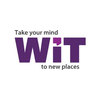Web in Travel Recap: Tough times drive innovation
Travel CEOs promise courage and direction in uncertain climate

Innovation will not take a backseat in the current economic crunch. Indeed, leaders of four leading travel companies said that innovation would come from Asia where enthusiastic adoption of new technology and a growing middle class was creating a fertile environment for innovations in the travel space.
Indeed, said Brad Holman, managing director, Asia Pacific, for Travelport GDS, tough times drive innovation.
Citing the A380 and the Dreamliner, as innovations to drive yields and lower costs to improve margins, he said, "It's a common trend through history. Innovation should not take a back seat (during tough times)."
Speaking at the Audience with the CEOs panel at WIT-Web In Travel, Holman, quoting Warren Buffett – "When everybody is greedy, it's time to be fearful and when everybody is fearful, it's time to be greedy" – and said it was a time to be optimistic and there was opportunity when fear is the ruling emotion.
He refuted the challenge put forth that Asia was more known for imitation, not innovation. "I disagree that Asia is not an innovation centre. Even though it may not be the original innovator, look at the aggressive adoption of mobile phones in this part of the world.
"Innovation will come from Asia because of its lower cost base. We have the opportunity to use some of these aspects to drive innovation."
Ric Leutwyler, President of Utell Hotels & Resorts, also believes innovation will come from Asia as markets gain more confidence. "In the past, they'd say, let's catch up with the West. Now, they say, oh no, we don't have to catch up, let's run by them. This is absolutely fabulous. It's going to push everyone around the world and shake everyone up."
Chong Phit Lian, CEO of Jetstar Asia, said it didn't matter whether it was innovation or imitation. What mattered was application and that's where Asia's got it right. "Look at how you have used SMS in this conference – you get the question, you get the answer, it's a perfect interpretation. It gets the job done."
As for the next big thing their companies were betting on, Holman cited social networking sites – "that phenomenon where people's decisions on travel and locations are influenced real time by real people comments".
Robert Bailey, CEO of Abacus International, picked mobile. He sees mobile devices and the convergence of Web 2.0 technology as perfect for enhancing the travel experience "given that travel is mobile in itself".
"A lot of the mobile devices are coming from Asia and this will help position Asia at the forefront of innovation."
Mobile was also Leutwyler's choice. "This is such a mobile focused environment, there's greater comnfort level and that's going to push people to invest more in the area."
Utell has launched mobileutell.com where customers can book hotels by mobile. "Each hotel has to choose to convert their information to that channel. Partnerships are very important – we are looking for social networking and online optimization and we are looking for partners who are good at that, and leverage on that."
Chong said the idea of social networking and "getting consumers to become your partners" was a powerful one.
There is no running away from current realities though and all four agreed that the coming year would be turbulent for the industry, and only the strong would survive the times ahead.
Said Holman, "We need courage, vision and motivation – keeping the team spirit up and giving direction in this somewhat turbulent times. We also need to innovate and look for new ways of doing new things."
Abacus' Bailey said the company would look into processes "to make it easier to do business with us". "We want to get closer to the customer and make sure teams with interaction with suppliers and customers are empowered," he said.
"If you make it easy to do business, you get business. You also get happier, more motivated staff. We are investing in our brand – people need to work and do business with companies they trust. In uncertain times, you need to build on trust."
Chong said the airline would look at improving processes to make it easier for the customer. "How they perceive the cost may be different from us – what you think is the best may not be the best to the customer because of the process they have to go through."
Leutwyler said it was important to keep everyone informed at this time. "People are nervous whether they are customers or internal teams. You've got to stay focused on things that will make a difference."
He added it was important to stay customer-focused. During tough times, "people hunker down and get internally focused".
"The ones who focus on the customer will come out on the winning end. If you have an internal focus, you may get through it financially but you will not be positioned for the longterm."
